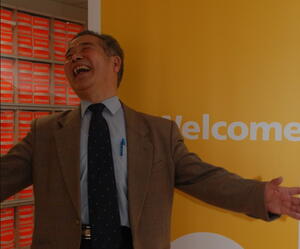Greater than the sum of the parts
Thirty-four years ago, Wan Yuanxi entered the Institute of Plasma Physics in Hefei in the Anhui Province and immersed himself in the study of the peaceful use of nuclear energy, with the idea in mind that great scientific achievements usually come from bold thinking. "In any scientific research project, everything that is done is ordinary," Wan says. "However, if we can integrate all the ordinary parts into a whole, this will be greater than the sum of the parts."
Integrating all the ordinary parts into a whole—especially when that whole is something unprecedented in the history of mankind—is the new task of Professor Wan, who is adding another chapter to his already prolific scientific career. This week, the man with the winning smile officially took over the Chair of the ITER Science and Technology Advisory Committee (STAC) after having served as Vice-Chair for two years and as Interim Chairman over the last year during the absence of Predhiman Kaw.
Wan Yuanxi, formerly the head of the Institute of Plasma Physics under the Chinese Academy of Sciences, is the mastermind behind the Experimental Advanced Superconducting Tokamak (EAST) project, the latest offspring in China of the international tokamak family. On 9 January 2009 he received, on behalf of the EAST team, China's State Top Scientific and Technological Award from the hands of Premier Wen Jiabao.
Although the challenges of his new task as STAC Chairman will be mainly related to science and engineering, an extra challenge for Professor Wan will be to have to express his thoughts and emotions in English. "English was the first foreign language I heard as a student," he remembers. "It was a radio program called the ´Voice of America.'" English later became his second foreign language after Russian. As soon as the political earthquake caused by the Cultural Revolution that forced him to work as a farmer was history, he followed the voice across the Pacific Ocean to the University of Texas at Austin. "But that is some 30 years ago and it will require all my strength to express my thoughts in English and to steer the debate," he said in an interview before this week's meeting. But what challenge is that for a man who has built a superconducting tokamak?


